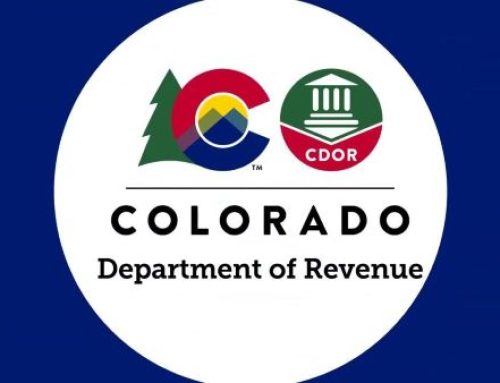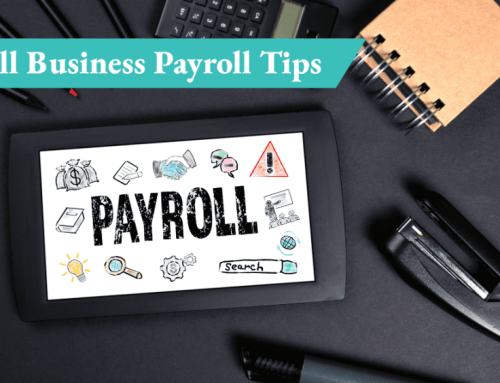 The new tax law is hot, and the topic on most small business owners’ minds is the new 20% write-off for pass-through income. This new deduction will take effect in 2018 under the new tax law, the Tax Cuts and Jobs Act (the Act). It should provide a substantial tax benefit to individuals with “qualified business income”(QBI) from a partnership, S corporation, LLC, or sole proprietorship (and even a Schedule E rental activity). This type of income is sometimes referred to as “pass-through” income.
The new tax law is hot, and the topic on most small business owners’ minds is the new 20% write-off for pass-through income. This new deduction will take effect in 2018 under the new tax law, the Tax Cuts and Jobs Act (the Act). It should provide a substantial tax benefit to individuals with “qualified business income”(QBI) from a partnership, S corporation, LLC, or sole proprietorship (and even a Schedule E rental activity). This type of income is sometimes referred to as “pass-through” income.
Be warned, this is one of the most complex provisions in the Act and for the next few paragraphs I will walk you through some of the specifics. If it sounds complicated – it is. However, if you make it through to the end I promise to give a few practical thoughts regarding this new law.
The deduction is 20% of your QBI from a partnership, S corporation, or sole proprietorship, defined as the net amount of items of income, gain, deduction, and loss with respect to your trade or business. The business must be conducted within the U.S. to qualify, and specified investment-related items are not included, e.g., capital gains or losses, dividends, and interest income (unless the interest is properly allocable to the business). The trade or business of being an employee does not qualify. Also, QBI does not include reasonable compensation received from an S corporation, or a guaranteed payment received from a partnership for services provided to a partnership’s business.
The deduction is taken “below the line,” i.e., it reduces your taxable income but not your adjusted gross income. But it is available regardless of whether you itemize deductions or take the standard deduction. In general, the deduction cannot exceed 20% of the excess of your taxable income over net capital gain. Rules are in place (discussed below) to deter high-income taxpayers from attempting to convert wages or other compensation for personal services into income eligible for the deduction.
Here is where it gets more complex. For taxpayers with taxable income above $157,500 ($315,000 for joint filers), an exclusion from QBI of income from “specified service” trades or businesses is phased in. These are trades or businesses involving the performance of services in the fields of health, law, consulting, athletics, financial or brokerage services, or where the principal asset is the reputation or skill of one or more employees or owners. Here’s how the phase-in works: If your taxable income is at least $50,000 above the threshold, i.e., $207,500 ($157,500 + $50,000), all of the net income from the specified service trade or business is excluded from QBI. (Joint filers would use an amount $100,000 above the $315,000 threshold.) If your taxable income is between $157,500 and $207,500, you would exclude only that percentage of income derived from a fraction the numerator of which is the excess of taxable income over $157,500 and the denominator of which is $50,000. For example, if taxable income is $167,500 ($10,000 above $157,500), only 20% of the specified service income would be excluded from QBI ($10,000/$50,000). (Joint filers would apply using the $315,000 threshold, and a $100,000 phase-out range.)
Additionally, for taxpayers with taxable income more than the above thresholds, a limitation on the amount of the deduction is phased in based either on wages paid or wages paid plus a capital element. Here’s how it works: If your taxable income is at least $50,000 above the threshold, i.e., $207,500 ($157,500 + $50,000), your deduction for QBI cannot exceed the greater of (1) 50% of your allocable share of the W-2 wages paid with respect to the qualified trade or business, or (2) the sum of 25% of such wages plus 2.5% of the unadjusted basis immediately after acquisition of tangible depreciable property used in the business (including real estate). So, if your QBI were $100,000, leading to a deduction of $20,000 (20% of $100,000), but the greater of (1) or (2) above were only $16,000, your deduction would be limited to $16,000, i.e., it would be reduced by $4,000. And if your taxable income were between $157,500 and $207,500, you would only incur a percentage of the $4,000 reduction, with the percentage worked out via the fraction discussed in the preceding paragraph. (Joint filers would apply using the $315,000 threshold, and a $100,000 phase-out range.)
Wow, you have made it this far! As promised, here are a few practical planning opportunities to discuss with your tax advisor.
#1: depending on the type of business entity structure it will be important to discuss the level of compensation you are paying yourself as the owner. Determining “reasonable compensation” to the owner has always been important for S corporation owners and will now be even more important under the new tax law.
#2: For businesses in the phase-out ranges (especially service businesses) it will be important to consider purchasing equipment and other business assets under the new bonus depreciation rules (another topic for another day). Such depreciation deductions may reduce QBI below the phase out range and allow for an increase in the 20% deduction.
#3: It is common for small business owners to have self-rental structures. In other words, the owner of the business is also the owner of the entity that owns the real estate where the business operates. Adjusting rental rates between the operating business and the rental business may have significant impact on the amount of the 20% deduction. Of course, any rent adjustments should be made within normal market ranges.
The bottom line, it will be important for you as the small pass-through business owner to schedule some time with your trusted tax and business advisor to talk through how this new law will impact you. Keep in mind that, given the complexity of this area of the Act, we expect the IRS to come out with numerous regulations and other guidance to further clarify how to apply the 20% deduction for pass-through businesses. So, stay tuned!
Chris West, CPA, is the principal in charge of the Grand Junction tax office and is responsible for the overall management including general administration, personnel, and fiscal oversight. He has over 20 years of experience in public accounting and serves on the Firm’s board. Chris specializes in mergers and acquisitions, real estate tax issues, real estate development, cost segregation studies, small business taxation, and consulting/tax planning for high net worth individuals. He is a graduate of Colorado Mesa University with an accounting degree and a minor in music. Always an active community supporter, Chris is a member of the Rotary Club of Grand Junction and a board member of Western Colorado Community Foundation.



